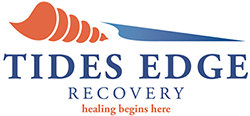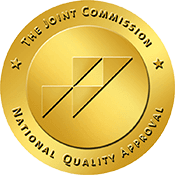Heavy long-term alcohol use can lead to both psychological and physical dependency or addiction. This causes you to suffer from withdrawal symptoms if you immediately stop drinking. When physical dependency occurs, your body begins to need alcohol to function. Alcohol withdrawal symptoms can be severe and even fatal. You can experience tremors, shaking, sweating, and even hallucinations. Alcohol addiction teaches the body to rely on it and influence, change, and impair brain chemistry. Withdrawal symptoms can also worsen co-occurring physical and mental conditions. Feelings of sadness and depression, as well as anxiety, can be common alcohol withdrawal symptoms. The first step in healing from alcohol use disorder is through an alcohol detox program, which can help alleviate withdrawal symptoms.
At Tides Edge Detox, we provide a safe, secure environment where individuals can detox in comfort, knowing they are medically supervised so that if complications arise, they are immediately addressed.
Most Common Alcohol Withdrawal Symptoms
When an individual has been using alcohol for a long period or even binge drinking, they can experience withdrawal symptoms. Alcohol alters brain chemistry, making it difficult for the body to generate necessary chemicals without alcohol to prompt it. This dependency or alcohol addiction can lead to withdrawal symptoms causing pain and discomfort. Withdrawal symptoms can begin as quickly as two hours after your last drink and can last for several weeks. Alcohol withdrawal symptoms peak about 48 hours after your last drink.
Some of the most commonly occurring alcohol withdrawal symptoms include:
- Insomnia and fatigue
- Sweating
- Delirium tremens (DTs), which can be life-threatening
- Severe mood swings, irritability, and depression
- Rapid heart rate
- Dehydration
- Shakes and tremors
The most severe alcohol withdrawal symptoms are related to delirium tremens, a condition that can spark hallucinations and seizures. The DTs can also cause extreme confusion, irregular heartbeat, and uncontrollable shakes. Delirium tremens can last for up to three days and are most likely to occur between two and three days after last consuming alcohol. Alcohol is considered the most dangerous substance to withdrawal because of the potentially life-threatening complications it poses.
Although uncommon, people have died from delirium tremors after experiencing severe fevers and seizures. Depression is another common side effect of alcohol withdrawal, which can pose an increased risk of suicide until brain chemistry is rebalanced.
Medically Assisted Alcohol Detox
The severity of alcohol withdrawal symptoms requires medically supervised detox. The risks of delirium tremens, which can be fatal, can easily be monitored and prevented through proper medications. Thus, one of the benefits of medically supervised detox is the opportunity to receive medications to aid in coping with withdrawal. Benzodiazepines are successful in combatting these withdrawal symptoms and preventing delirium tremens. However, their use must be closely monitored as they carry with them the potential for abuse. Since alcohol withdrawal can impact things like blood pressure, medical supervision helps ensure you are safe during detox.
Ensuring that you remain properly hydrated is important because alcohol withdrawal includes nausea and vomiting, leading to dehydration. Since withdrawal symptoms may cause fevers, medically assisted alcohol detox programs regularly monitor your vital signs to prevent significant physical problems.
Medications can also decrease discomfort during withdrawal. An alcohol detox center in Jacksonville, FL, can provide a safe environment while you withdrawal and connect you to additional treatment resources.
Find the Treatment for Alcohol Abuse You Need at Tides Edge Detox
For those struggling with alcohol use disorder, the discomfort and feat of withdrawal symptoms can prevent them from finding the help they need to heal and recover. When experiencing alcohol withdrawal symptoms, it is important to find a professional and experienced treatment center. At Tides Edge Detox, we provide comprehensive, medically supervised detox as well as therapy services such as:
Cognitive-Behavioral Therapy Program
A cognitive-behavioral therapy program combines cognitive behavioral techniques, such as identifying and changing dysfunctional thinking, with techniques like motivational interviewing in order to help individuals understand their relationship with alcohol and how it affects their life. The goal of the program is to help individuals develop the skills and strategies needed to maintain abstinence, manage cravings and break old drinking habits.
Group Therapy Program
As the name suggests, group therapy takes place in a group setting, such as an outpatient treatment center or residential facility. It provides individuals with the opportunity to share their experiences and feelings about addiction in a supportive environment. Group therapy helps individuals learn how to cope with cravings, manage stressors, and develop relapse-prevention strategies.
Individual Therapy Program
Individual therapy focuses on one-on-one conversations between a therapist and an individual. This type of program helps individuals gain insight into their behavior and thoughts surrounding addiction, build coping skills to manage cravings, learn new ways to deal with stressors and triggers, and develop relapse prevention strategies.
Yoga Therapy Program
A yoga therapy program combines yoga-based movements, breathing techniques, and meditation to help individuals cope with cravings, manage symptoms of withdrawal, and develop healthier behaviors and attitudes toward alcohol. Yoga therapy can also provide mindfulness training, helping to reduce anxiety and depression associated with addiction.
Recovery Begins With This First Step
It’s time to stop letting alcohol addiction rule your life. Call us today at 866.723.3127, or contact us online to learn more about how we can help you receive the best care for alcohol detoxification.









